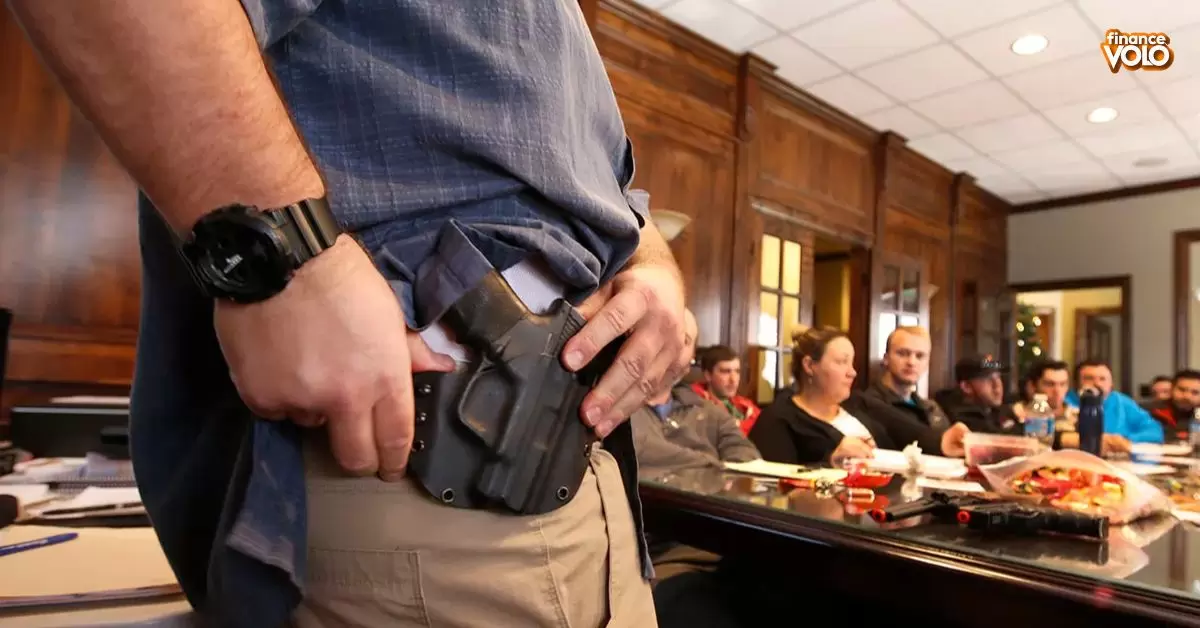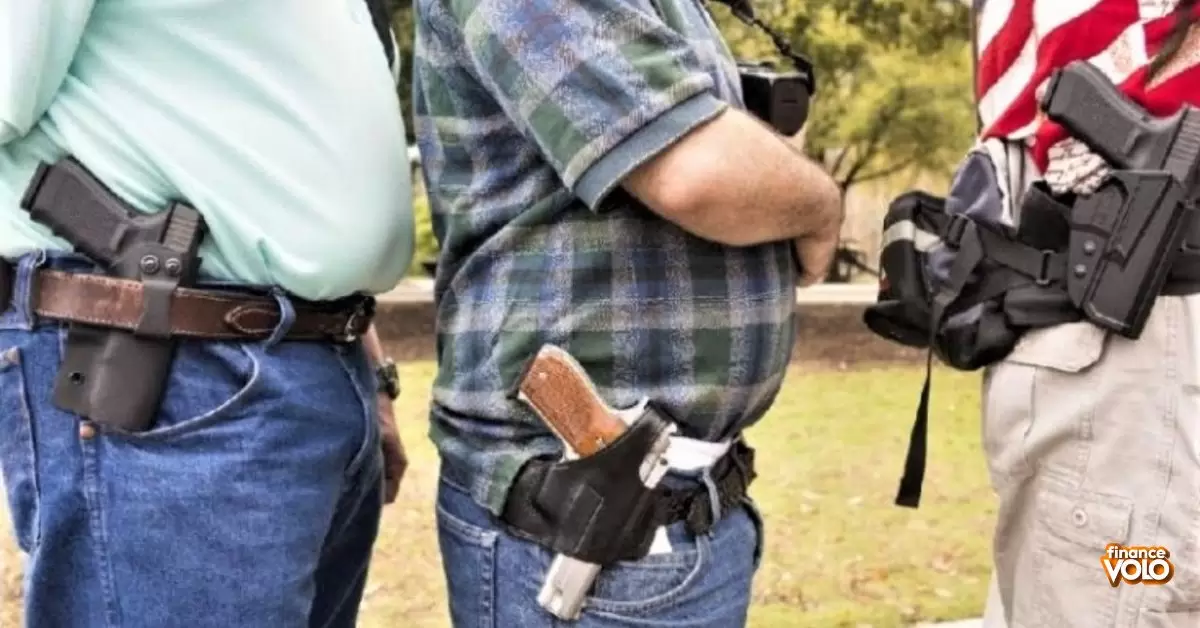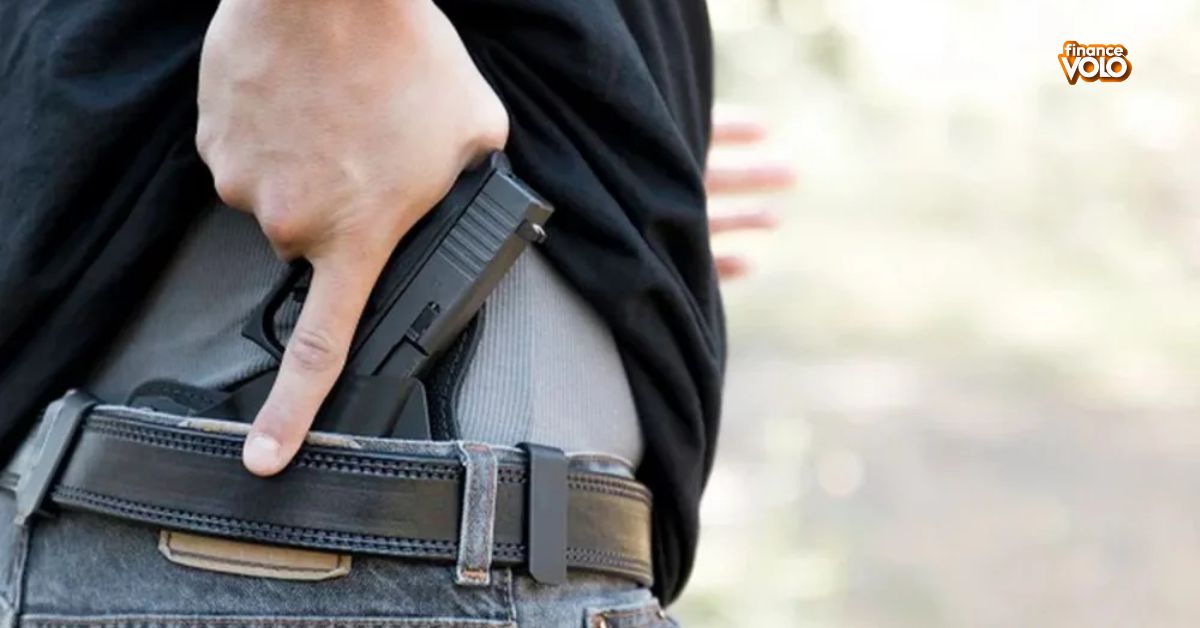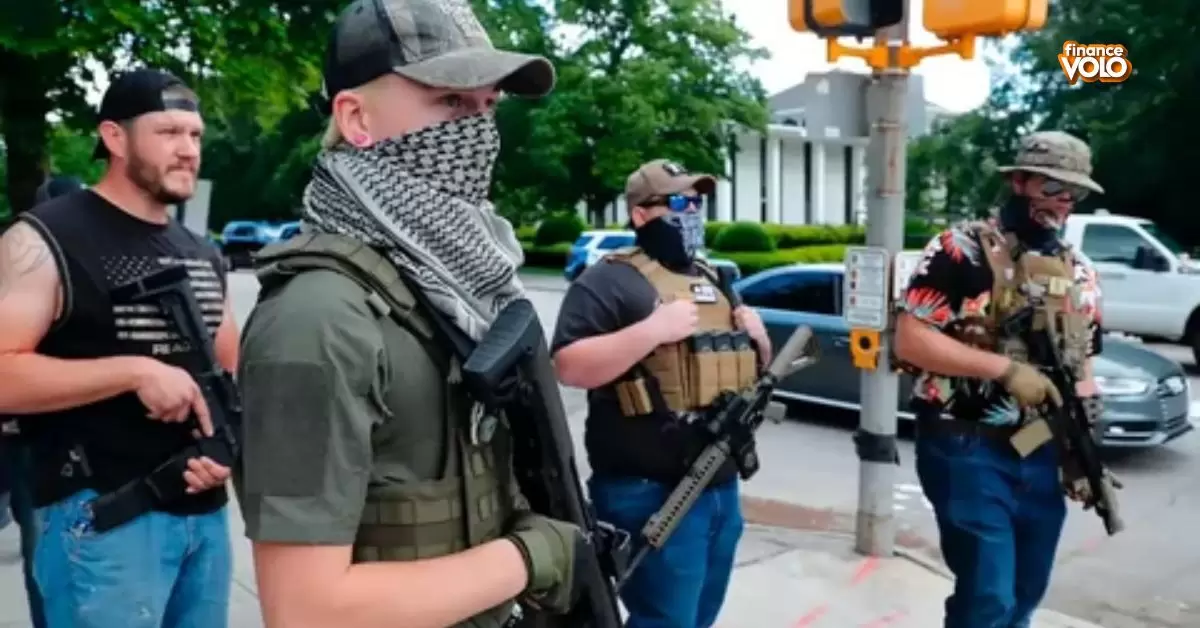With the ongoing debate surrounding gun rights and public safety, the question of whether individuals can legally carry concealed firearms in banks has become a contentious issue. Banks, as private businesses and financial institutions, must navigate a complex web of federal and state laws, local regulations, and their own policies regarding the possession of firearms on their premises.
In this article, we’ll delve into the intricacies of concealed carry laws in banks, exploring the legal landscape, potential risks, and best practices for ensuring the safety of employees, customers, and the general public.
Federal Law Pertaining to Carrying in a Bank
At the federal level, the Gun Control Act of 1968 prohibits individuals from carrying firearms, either concealed or openly, into federally insured banks. This law applies regardless of whether the individual has a concealed carry permit or not. However, it’s important to note that this law does not necessarily extend to state-chartered banks that are not federally insured.
Banks’ Right to Prevent Guns on Their Property
Regardless of federal or state laws, banks, as private property owners, have the right to establish their own policies regarding the possession of firearms on their premises. Many banks exercise this right and have implemented no firearms policies for their branches, citing safety concerns as the primary reason.
These policies typically apply to both customers and employees, regardless of whether they have a concealed carry permit or not. Banks often post signage at the entrance and within their premises, clearly stating their stance on firearms. Failure to comply with these policies can result in legal consequences, such as trespassing charges.
State Laws Regarding Concealed Carry in Banks
State laws concerning concealed carry in banks vary significantly across the United States. Some states have specific laws that prohibit concealed carry in banks, while others defer to individual bank policies.
For example, in Texas, the state’s concealed carry law allows permit holders to carry concealed handguns into most public places, including banks, unless the bank has posted appropriate signage prohibiting it. On the other hand, states like California generally prohibit concealed carry in banks, regardless of whether the individual has a permit or not.
Can you conceal carry at a bank in Texas?
In Texas, the state’s concealed carry law allows permit holders to carry concealed handguns into most public places, including banks, unless the bank has posted appropriate signage prohibiting it. However, even in states like Texas where concealed carry is permitted in banks, individual banks can still choose to prohibit firearms on their premises.
Where can you not conceal carry in Texas?
While Texas has relatively permissive concealed carry laws, there are still several locations where it is prohibited, even for permit holders. These include:
- Schools and school-sponsored events
- Polling places on election days
- Courthouses and courtrooms
- Racetracks
- Secured areas of airports
- Certain businesses that derive 51% or more of their income from the sale of alcoholic beverages for on-premises consumption
It’s important to note that this list is not exhaustive, and there may be other specific locations or circumstances where concealed carry is prohibited in Texas. It’s always best to familiarize yourself with the state’s laws and regulations before carrying a concealed weapon.
The Importance of Knowing Your Rights as a Concealed Carrier
As a concealed carry permit holder, it’s essential to understand your rights and responsibilities fully. This includes being aware of not only state laws but also federal regulations and private property owners’ policies. Failure to comply with these laws and regulations can result in serious legal consequences, such as trespassing charges, fines, or even the revocation of your concealed carry permit.
It’s also important to remember that exercising your right to carry a concealed weapon comes with a great deal of responsibility. You must always prioritize safety and avoid escalating confrontations or putting others at risk.
The Risks and Consequences of Carrying a Weapon into a Bank
Carrying a concealed weapon into a bank, even if it’s permitted by state law, can pose significant risks and potential consequences. Some key risks and consequences to consider include:
- Accidental Discharge: An accidental discharge of a firearm in a bank can have catastrophic consequences, putting innocent bystanders at risk of injury or death.
- Escalated Confrontations: The presence of a firearm, even if it’s concealed, can escalate confrontations or misunderstandings, potentially leading to violence.
- Robbery Risks: If a robbery were to occur, a concealed weapon could be taken from the permit holder and used against them or others.
- Legal Consequences: Violating a bank’s “no firearms” policy, even if you have a permit, can result in trespassing charges, fines, or even the revocation of your concealed carry permit.
- Liability Concerns: If you were to use your concealed weapon in a bank, even in self-defense, you could face civil liability or lawsuits from the bank or other parties involved.
It’s crucial to carefully weigh these risks and potential consequences before deciding to carry a concealed weapon into a bank, even if it’s legally permitted in your state.
Alternatives to Concealed Carry in Banks
Given the risks and potential consequences associated with carrying a concealed weapon into a bank, it’s worth considering alternative safety measures and precautions. Some alternatives to consider include:
- Comply with Bank Policies: If a bank has a “no firearms” policy, it’s generally advisable to comply with their rules and leave your concealed weapon at home or in your vehicle.
- Increased Situational Awareness: Maintaining a heightened state of situational awareness and being vigilant about your surroundings can help you identify potential threats and take appropriate action without the need for a firearm.
- Personal Safety Devices: Consider carrying alternative personal safety devices, such as pepper spray, personal alarms, or self-defense tools, which may be permitted in banks and can provide a non-lethal means of protection.
- Avoidance and De-escalation: When possible, avoid confrontations or situations that could potentially escalate. Learning effective de-escalation techniques can help defuse tense situations without the need for violence.
- Seek Professional Security Services: If you have specific safety concerns, consider seeking professional security services or consulting with law enforcement for guidance on appropriate safety measures.
While these alternatives may not provide the same level of protection as a concealed weapon, they can help mitigate risks and avoid potential legal consequences associated with carrying a firearm into a bank.
Tips for Safely Carrying a Weapon into a Bank
If you decide to carry a concealed weapon into a bank where it is legally permitted, it’s essential to take every precaution to ensure the safety of yourself and others. Here are some tips for safely carrying a weapon into a bank:
- Know the Laws and Regulations: Thoroughly research and understand the federal, state, and local laws, as well as the bank’s specific policies, before carrying a concealed weapon into a bank.
- Maintain Strict Concealment: Ensure that your weapon is completely concealed and not visible to others. Any accidental exposure of your firearm could cause unnecessary alarm or escalation.
- Avoid Confrontations: If a situation arises, avoid escalating confrontations or drawing attention to your concealed weapon. Prioritize de-escalation and seek to resolve conflicts peacefully.
- Practice Situational Awareness: Maintain a heightened state of situational awareness and be vigilant about your surroundings. Identify potential threats and have a plan for responding appropriately.
- Seek Professional Training: Invest in professional training on topics such as safe gun handling, situational awareness, and de-escalation techniques. This can help you develop the skills and mindset necessary for responsibly carrying a concealed weapon.
- Be Prepared for Emergencies: Have a plan in place for responding to emergencies, such as a robbery or active shooter situation, while prioritizing the safety of yourself and others.
Remember, carrying a concealed weapon is a significant responsibility, and it’s essential to prioritize safety and follow all applicable laws and regulations.
The Role of Bank Security in Preventing Concealed Carry Incidents
Banks typically have robust security measures in place to protect their employees, customers, and assets. These measures can play a crucial role in preventing incidents involving concealed carry and ensuring the safety of all parties involved.
- Security Personnel: Many banks employ security guards or hire private security firms to monitor their premises. These security personnel are trained to identify potential threats, enforce bank policies, and respond appropriately to incidents.
- Surveillance Systems: Banks often have extensive surveillance systems in place, including closed-circuit television (CCTV) cameras and monitoring systems. These systems can help detect and deter individuals who may be carrying concealed weapons or engaging in suspicious activity.
- Access Control Measures: Banks may implement access control measures, such as metal detectors or x-ray machines, to screen individuals entering their premises. These measures can help identify concealed weapons and prevent them from being brought into the
How to Make Bank Employees More Comfortable with Guns
While banks have the right to establish no firearms policies, there may be situations where concealed carry is permitted on their premises. In such cases, it’s important for bank employees to feel comfortable and prepared to handle situations involving individuals carrying concealed weapons. Here are some strategies banks can implement:
- Provide Comprehensive Training: Offer training programs covering concealed carry laws, bank policies, and best practices for interacting with armed individuals. This builds employees’ understanding and skills.
- Foster Open Communication: Encourage open discussions between management and employees about concealed carry concerns. Address misconceptions and provide accurate information.
- Establish Clear Protocols: Develop protocols for employees to follow when encountering armed individuals, including response procedures and escalation steps.
- Emphasize De-escalation Techniques: Incorporate de-escalation training to teach employees how to communicate effectively, diffuse tensions, and avoid escalating confrontations.
- Involve Security Professionals: Collaborate with security experts to provide guidance and training, helping build employees’ confidence.
- Foster Professionalism: Cultivate a culture where employees maintain composure and follow protocols, regardless of the situation.
- Provide Support Resources: Offer counseling services, employee assistance programs, or peer support for those experiencing stress related to armed encounters.
How Concealed Carry Laws Affect Bank Employees and Customers
Concealed carry laws can have significant impacts on both bank employees and customers:
Impact on Bank Employees
- Safety concerns about the presence of armed customers
- Increased training needs on handling concealed carry situations
- Potential liability concerns if an incident occurs
- Employee retention and recruitment challenges
Impact on Bank Customers
- Perceived safety concerns for some customers
- Potential for confrontations or misunderstandings
- Limited access to banking services in areas with stricter laws
- Compliance required with bank firearms policies
Banks must carefully navigate concealed carry laws while prioritizing the well-being and comfort of employees and customers.
The Debate Over Concealed Carry in Public Spaces
The topic of concealed carry in public spaces like banks is hotly debated. Proponents argue it allows self-defense and deters crime, while opponents raise concerns about risks like accidental discharges and escalated confrontations.
This reflects the broader societal discourse on balancing gun rights, public safety, and individual liberties versus collective well-being. Policymakers must consider perspectives from all stakeholders while prioritizing community safety and security.
Navigating the Complexities of Concealed Carry and Banking Regulations
As we’ve seen, the intersection of concealed carry laws and banking regulations is intricate and nuanced. While the Second Amendment protects the right to bear arms, its implementation is subject to various laws and private property policies.
To navigate these complexities, permit holders must thoroughly understand applicable laws, regulations, and potential risks. Banks must also carefully evaluate concealed carry’s impacts while ensuring employee and customer safety through policies and security measures.
Continuous education, open communication, and prioritizing de-escalation and responsible gun ownership practices are crucial for all parties involved in this multifaceted issue.
By thoroughly exploring the legal landscape, risks, safety considerations, and perspectives from all sides, this comprehensive article aims to provide valuable insights to concealed carriers, banks, employees, customers and policymakers grappling with the complexities surrounding concealed carry in banking environments. Open and informed dialogue is key to finding appropriate balances that uphold rights while maintaining public welfare.
Frequently Asked Questions
Can I conceal carry in any bank in the United States?
No, federal law prohibits carrying firearms (concealed or open) into any federally insured bank. State laws and bank policies also vary.
What if my state allows concealed carry in banks?
Even if your state permits concealed carry in banks, individual banks can still prohibit firearms on their private property and refuse entry to armed individuals.
How can I know if a bank allows concealed carry?
Banks that prohibit firearms are required to post clear signage at entrances. If there is no posted signage, you should assume firearms are not allowed unless you verify the bank’s policy.
What are the consequences of carrying concealed in a bank that doesn’t allow it?
Violating a bank’s firearm policy could result in being charged with trespassing, fines, revocation of your concealed carry permit, or potential civil liabilities.
Are there any exceptions for law enforcement officers?
Typically, on-duty law enforcement officers are exempt from laws and policies prohibiting firearms in banks during the course of their official duties.
Final Words
In summary, concealed carry in banks is a complex issue governed by a patchwork of federal, state, and local laws, as well as the specific policies of individual banks. The federal Gun Control Act prohibits firearms in federally insured banks, but state laws vary. Even in permissive states, banks can establish their own “no firearms” policies as private property owners. Ignoring these policies can result in trespassing charges, permit revocation, and legal consequences.
For the safety of employees, customers, and the public, it’s crucial for concealed carriers to thoroughly research applicable laws and comply with posted bank policies. Banks should also prioritize security measures, emergency protocols, and employee training. Ultimately, responsible gun ownership, de-escalation tactics, and open communication are key to navigating this nuanced issue that balances Second Amendment rights with public welfare considerations. Continuous education and dialogue are essential for all stakeholders involved.














